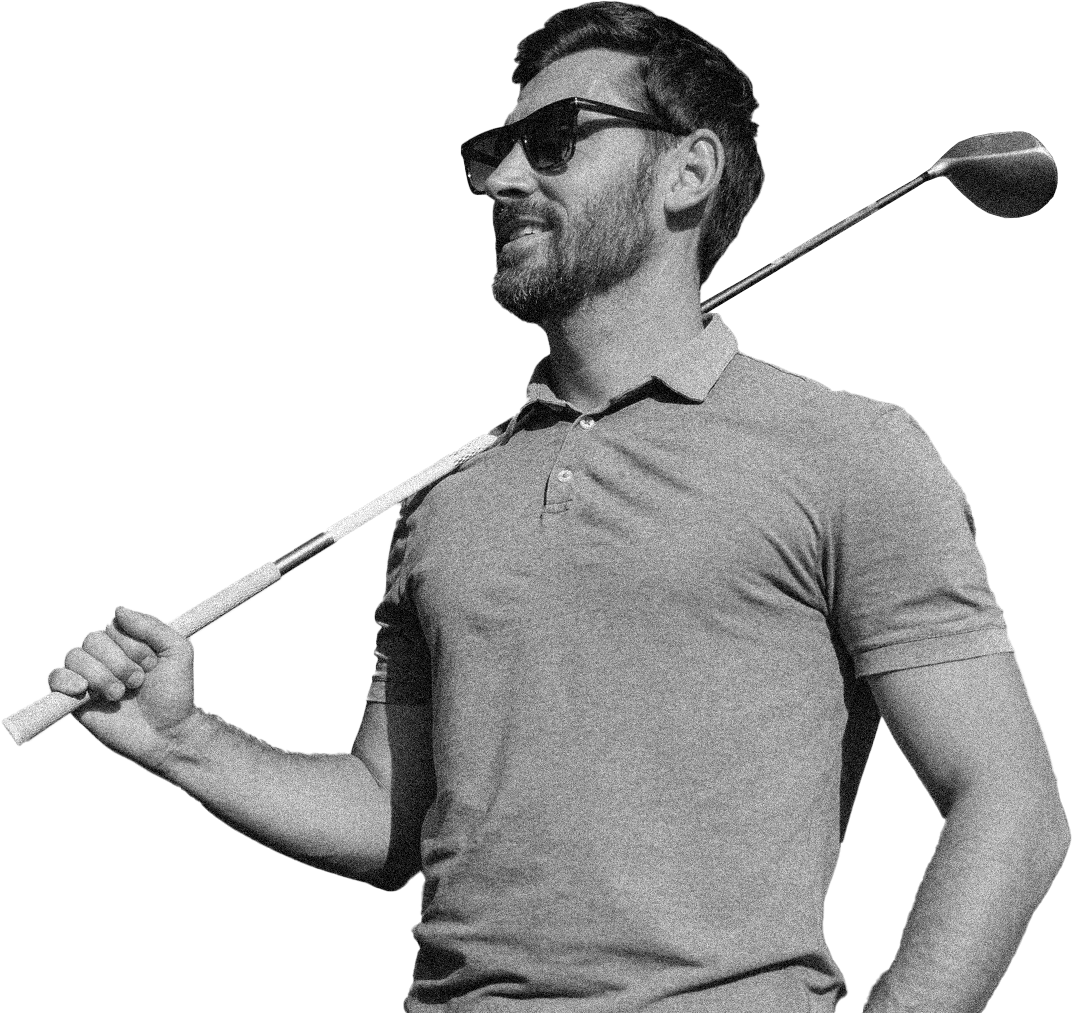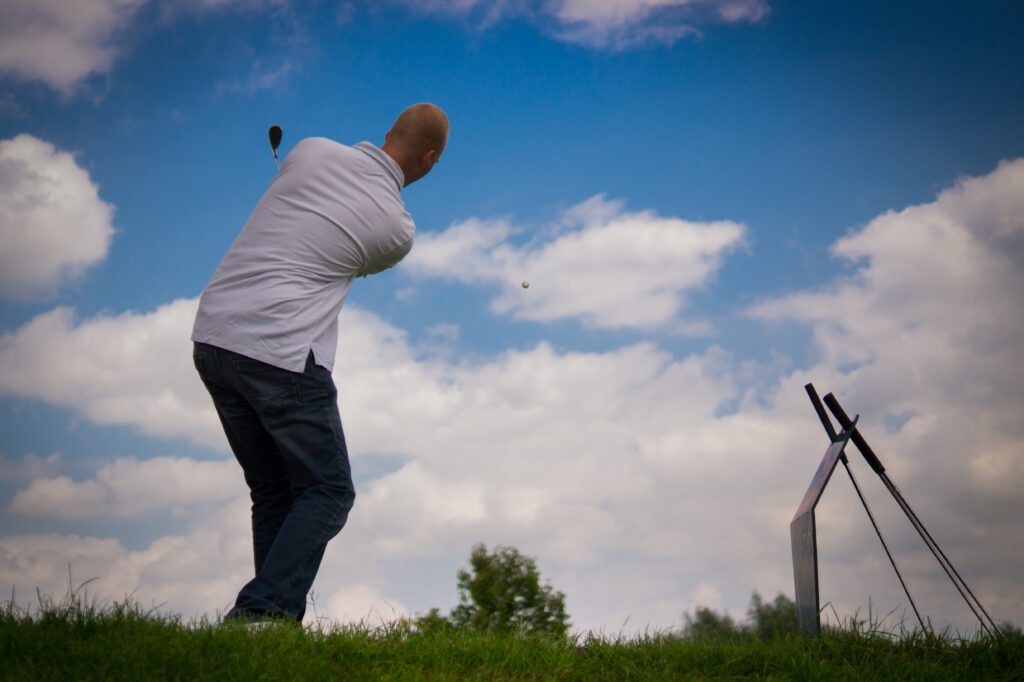You decided at the beginning of the season to commit to improving your golf game. You also decided to take the inexpensive improvement route of using YouTube, magazine articles, and other “free” advice you thought would help you improve. In other words, you made the decision of coaching yourself, versus enlisting the guidance and tutelage of someone who spends most of their day understand the game, the swing, and the process of playing the game.
You’re now several months into the process and find yourself getting much worse than you originally were. And no matter what you try, you can’t seem to pull yourself out of the hole you’ve dug for yourself. How has coaching yourself gotten you into this mess?
I’m not a financial expert. That’s why I hired someone to assist me with my financial affairs. I’m not a medical expert. That’s why I see my doctor when I’m experiencing a health issue I’m concerned about. Doesn’t it make sense that you seek the knowledge, wisdom, and expertise of a trained professional when you make a commitment to improve any aspect of your personal or professional life? So why is that so different with your golf game?
Coaching yourself rarely works. Why? Here’s 10 reasons why self-coaching can and will eventually backfire on you.
Lose of Objectivity
How can you be objective about yourself? It’s impossible to do. You’ll always over estimate your current abilities and skills. Doing so is self preservation, an attribute you need to get by each day. You’ll also overlook your most obvious weaknesses. Always focusing on your strengths may be good enough to get you across the street. But if you’re vision is failing and you can’t move your next, what good is your ability to walk across the street if you can’t see the oncoming traffic?
Very few individuals, no matter the sport, can objectively evaluate their strengths and deficiencies. Having objective eyes evaluate your skills is always the best route to take when committing to make improvements to yourself, no matter the sport or craft. Coaching yourself is a conflict of interest to your objectivity. No matter how objective you attempt to treat yourself, objectivity will always be slightly sacrificed.
Lose of Clarity
Objectivity creates clarity. Clarity allows us to think more clearly, envision possibilities, and cleanly define the process needed to gain potentiality. If you lose objectivity, how can clarity be defined or be retained?
Being able to clearly define goals, the improvement plan, and the accountability measurements you’ll use to judge your success is something you use everyday in life with the assistance of professionals. Why be different with your golf skills if you are committed to make significant improvements to your game? Without clarity, the purpose of committed improvement is sacrificed at a rate proportionate to the amount of out of focus goals and plans that you can’t measure and or achieve.
Are You Educated Enough?
Do you really know enough about the golf swing and it’s key components to look objectively at yourself and diagnose the main cause(s) of your issues?
Don’t fool yourself in believing your an expert. At the 2004 PGA Teaching and Coaching Summit, Jim Flick stated he only knew about 27% of what there was to know about golf and the golf swing. At the time, Mr. Flick was one of the foremost instructors of the sport, having taught countless students for over 50 years.
Mr. Flick was one of my mentors. And I will always remember that as a PGA Master Professional of Instruction, I do not know everything these is to know about the game. As did Mr. Flick, I study the game daily, almost hourly. If I’m consuming that much information about the game and the swing, and I per-say “can’t know it all,” how can you know enough to be your own coach?
Misunderstanding the Priorities
With a lack of knowledge or expertise comes the realistic possibility of you not understanding what to improvement when and in what order. It’s priorities that make your world go round seamlessly each day. And its priorities of knowing what to improve and why, in a particular order, that gets you to your improvement goal sooner than later.
Do you really understand how to prioritize your improvement process and in what order those priorities should occur? Do you really know what skills you need to improve? And do you really know how to prioritize the details to each of the skills you’re attempting to improve? Are you using a simple yet effective process to diagnose the exact cause of your issues? Or are you assuming that if you fix one thing everything else will fix itself?
All too often I have clients come to me having thought they fixed their issues, only to have created new issues they did not anticipate experiencing. This typically happens when they try to fix something that is not in a priority order that sequentially eliminates the initial issue they were attempting to fix.
Improving the “Lustful” Skills
Okay, hitting it far is a skill that can improve your scores. But is it really necessary or the priority? Better yet, is it just something you lust” for because it seems to be the thing to do?
The lust you desire for a particular skill is in direct proportion to how many other people you know or play with that possess that skill. What you fail to recognize is those golfers probably have the foundational components necessary to execute and sustain the skill you lust for. Do you possess the same foundation?
Chances are the skill you lust to possess will erupt with multiple failed attempts without first possessing the underlying skills necessary to sustain it. And without the knowledge and priority system in order, you’ll continue the poor results.
One Big Goal
When I ask my clients what they want to improve, most of the time they mention one big goal. This is most likely true when you coach yourself. But does one big goal always amount to improvement? Or do smaller more obtainable goals add up to far beyond the one goal you set for yourself?
If you have one big goal and achieve it, you’ll most likely rest upon that one achievement not realizing how much more improvement you could realize. Making smaller goals along the way of reaching a bigger goal provides purpose to your practice sessions as well as the time you spend to improve.
What’s Your Plan?
Often amateur golfers coach themselves without first creating an improvement plan. As the old saying states, trying to make improvements without a plan is planning not to improve.
Most golfers tell me they plan to work hard. Great! If that’s your plan, then maybe you need to expand upon this important element of improvement. How hard will you work? What will you work on and for how long? What are the details of your work? Approximately when will this work end? How will your work with one aspect of your game coexist with the work you perform upon another aspect of your game?
Creating a flexible plan with clear objectives is a road map to success.
Is the Improvement Plan Realistic?
So a plan is not enough. The plan has to be realistic to your ability to achieve the plan’s objectives and goals. All too often a simple plan can fail miserably if the plan is created without a realistic base.
What makes a plan realistic?
- Understand the inventory of your current skills and planning to use these strengths as your security blanket. When things go astray, you can always rely upon your current set of skills to right your ship
- Understanding and avoiding your limitations. If you have an known limit of flexibility or physical strength, then why are you attempting to use that limitation within your plan? Shouldn’t making that limitation an improvement element of your plan? How can any element of an improvement plan assist you when it is a known limitation? Quite often, I see amateur golfers include a limitation as part o the resources they plan to use within an improvement plan
- By leaving expectations out. I always tell my clients that expectations are goals without a plan. If you’re miraculously waiting for something to happen positively to your improvement, then expectations is most likely the culprit.
- Planning for the other distractions within your life. Doing so allows the plan to be flexible around those distractions while keeping you on tract to meet your goals.
Resources
Your most valuable resource is time. Is coaching yourself an effective way to utilize your most precious resource.? I’m sure someone out there is going to say yes. Because its your time. But related to time, how can you coach and play at the same time and do so with efficiency?
There’s other resources you’ll miss out on if you’re coaching yourself. Most of those resources are most likely staring you in the face as you read this blog post. Resources like support from family or friends. Resources such as household items that when altered can be effectively used to make you feel positions of your improvement better. But because you lack the knowledge of the game and the swing, you’ll most likely pass by these resources in exchange for high priced clubs or other tools that are all about shooting a better arrow, not improving the person holding and shooting the arrow.
Another resource that is missed 9 times out of 10 is your clubs. Do they fit properly? Do you know how to make that determination as you coach yourself? Probably not.
Accountability
Ultimately, your improvement is going to boil down to whether or not your new skills hold up to the scrutiny of playing a round of golf. In other words, will coaching yourself really be effective on the course with circumstances matter most?
We’ve all read about Jack Nickluas wanting to be his own best coach on the course. Arguably over his career, he succeeded at that endeavor. But how long did it take him to be his own best coach, while holding himself accountable for his performance and tournament finishes? If you ask him, he’ll probably answer by saying it’s an on-going effort that is filled with unexpected circumstances. Mr. Nicklaus’ ability to provide for his family was the ultimate measurement of accountability. So too is it for any tournament player dependent upon winnings and earnings. You’re not a tournament player. So how do you hold yourself accountable when you’re lawyer judge and jury to your own improvement?
If you’re coaching yourself, you can’ really hold yourself accountable unless golf is the ultimate means to an end. Accountability requires outside influences that are dependent upon your improvement. If your improvement fails to accomplish the goals you set for yourself, who are you going to fire for not being accountable along the way? Yourself? It’s not only counter productive firing yourself, it will hard to hire a replacement.
Conclusion
Think twice before setting out to coach yourself. It’s not impossible to coach yourself. But will take more than the effort you are planning for now for coaching yourself to lead to success both short and long term.






